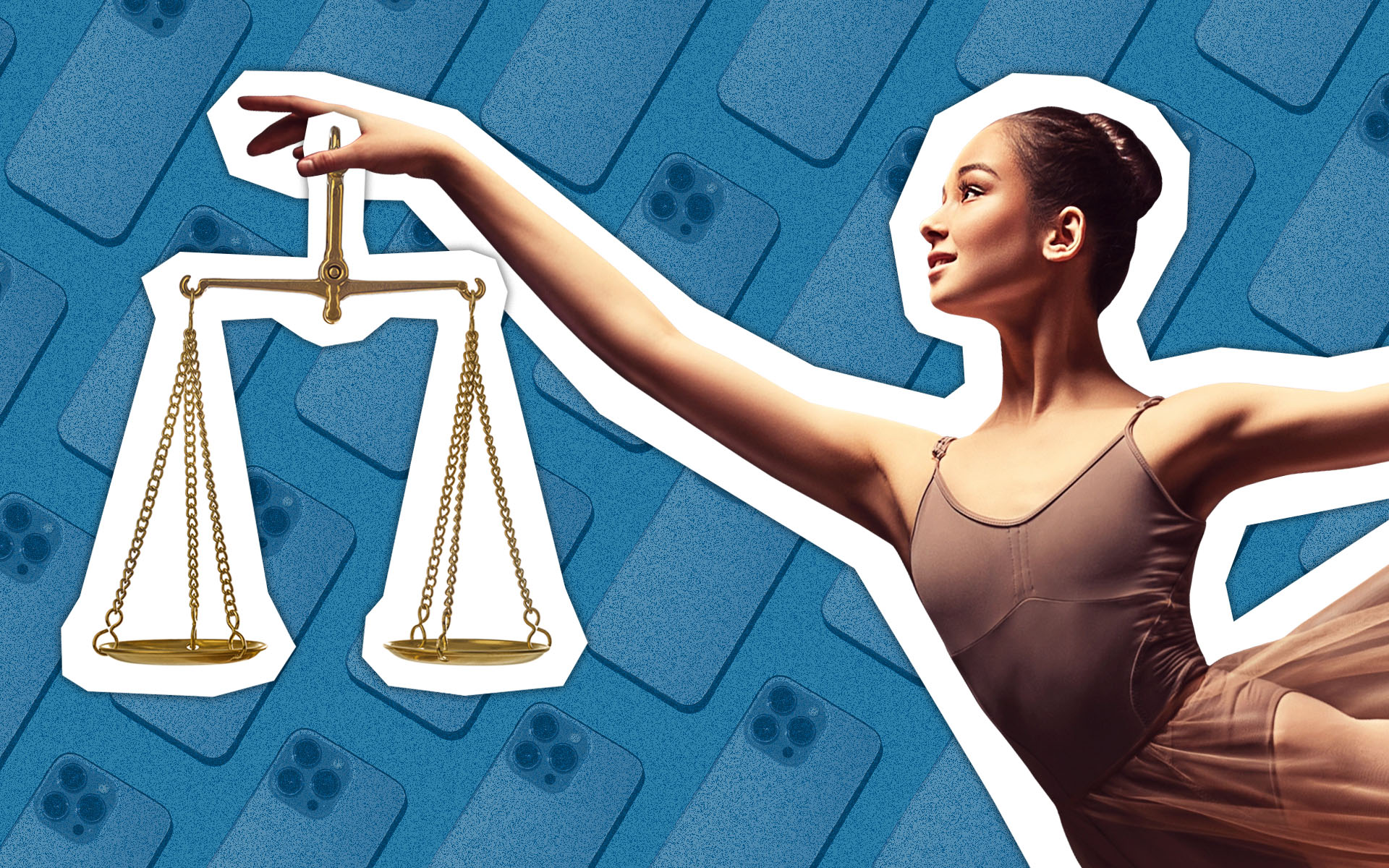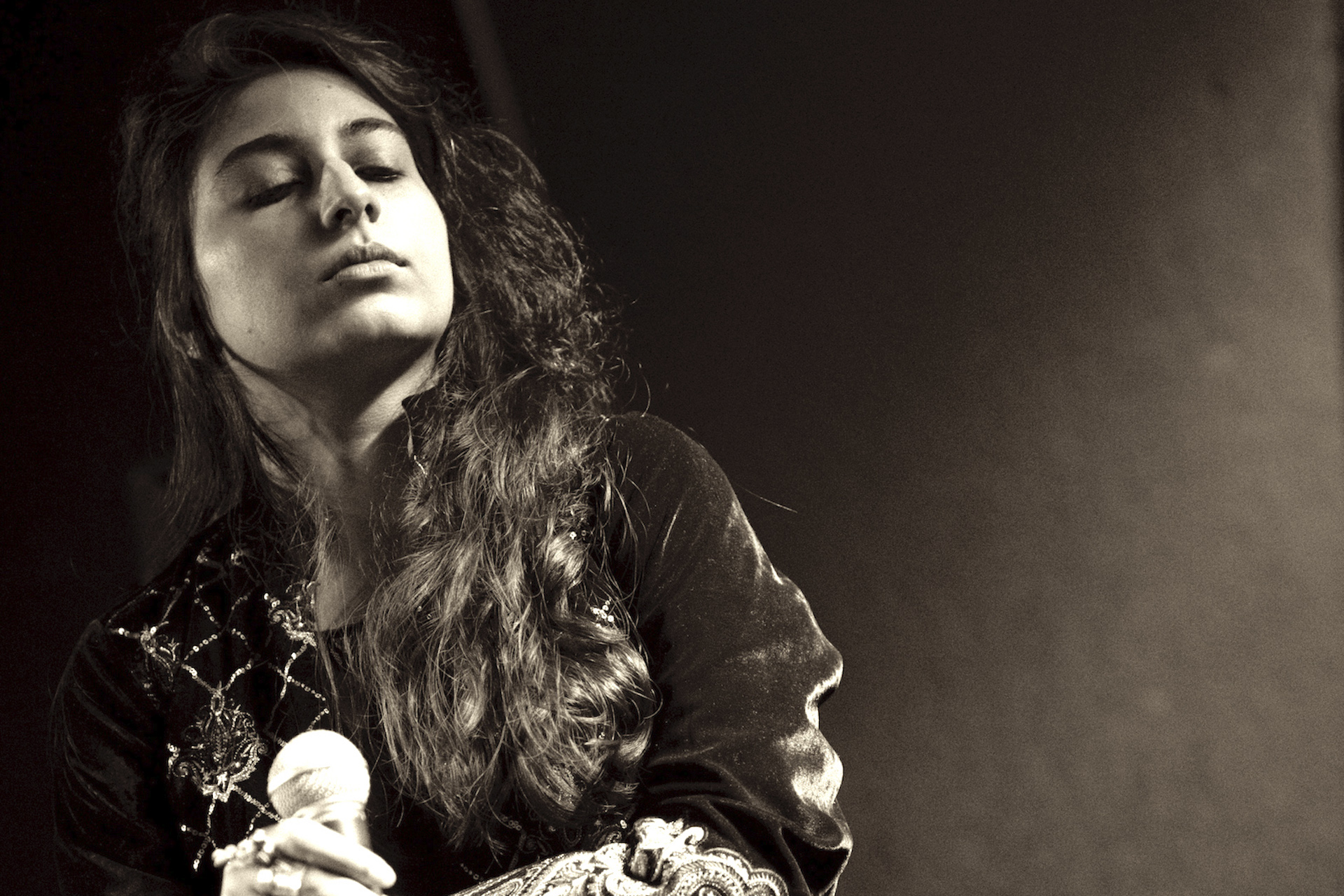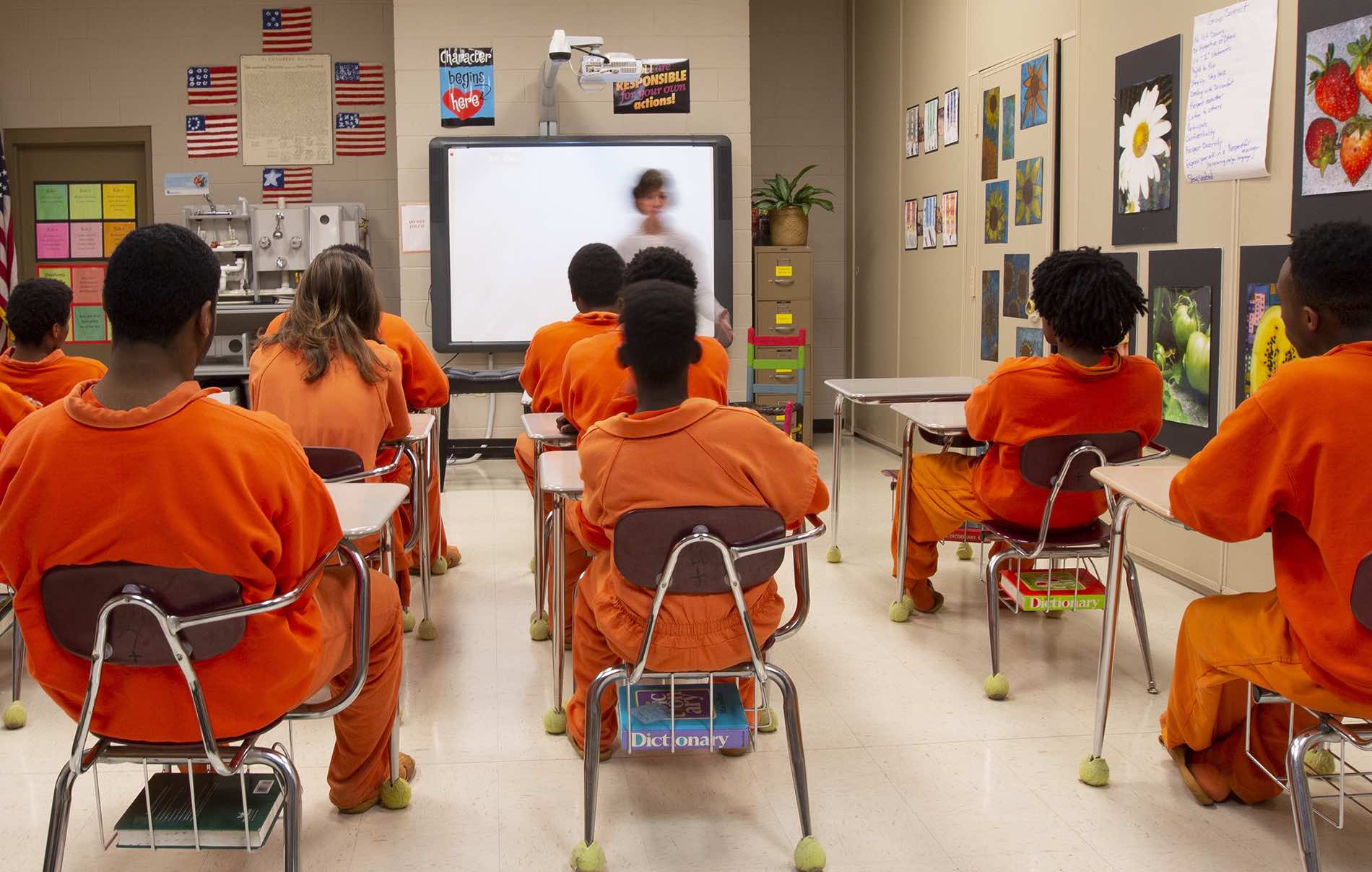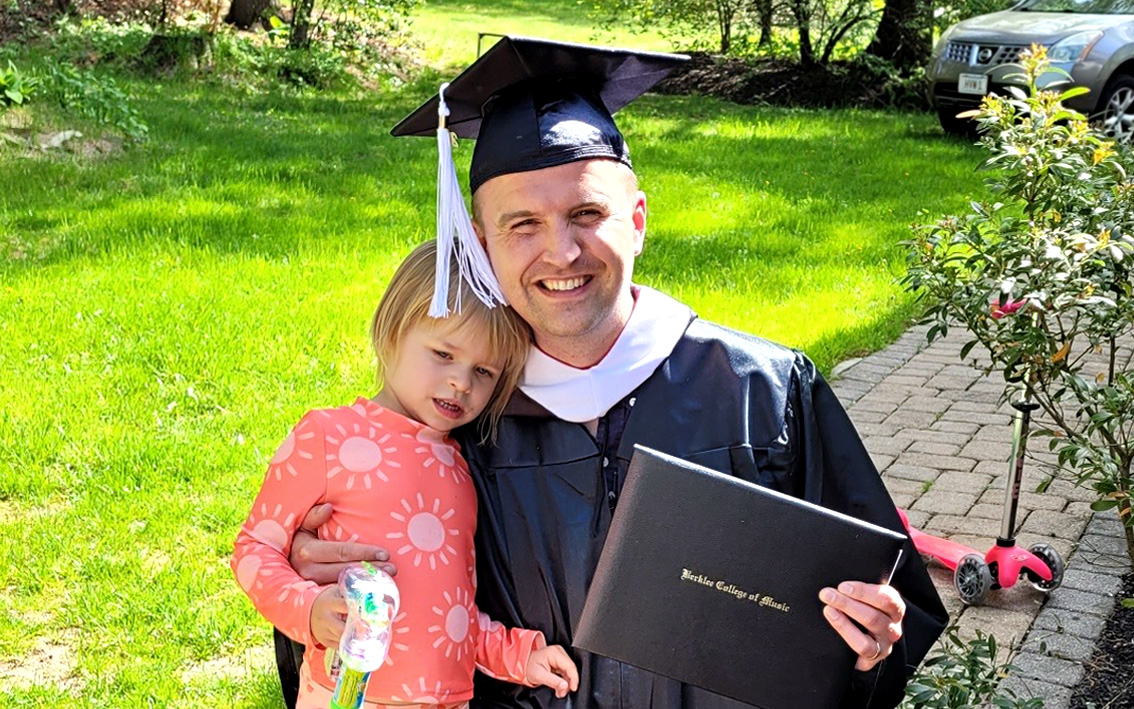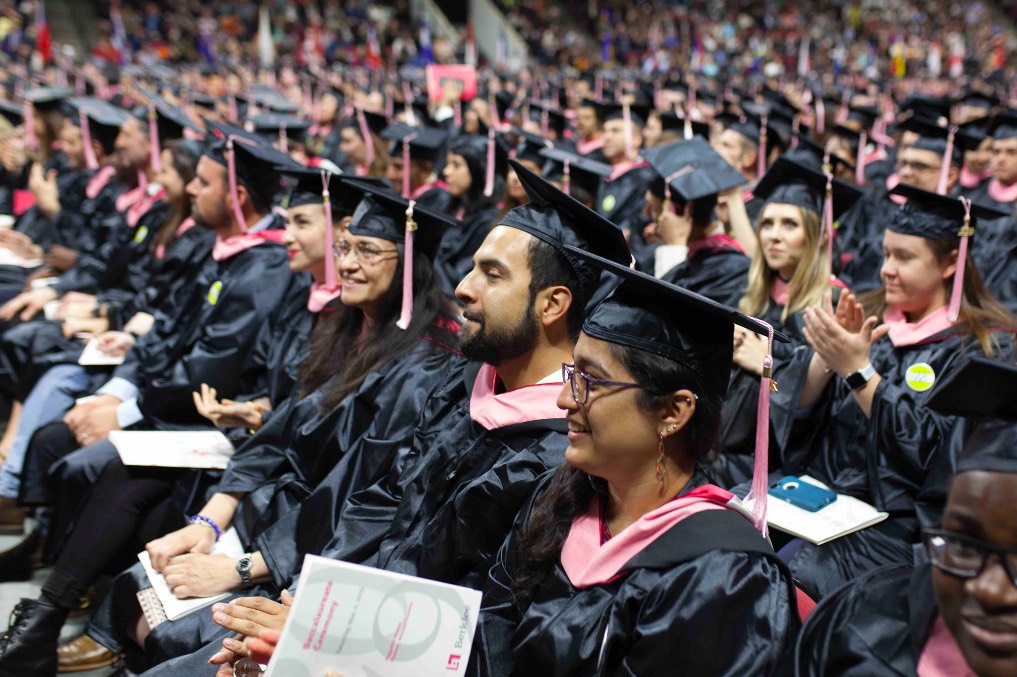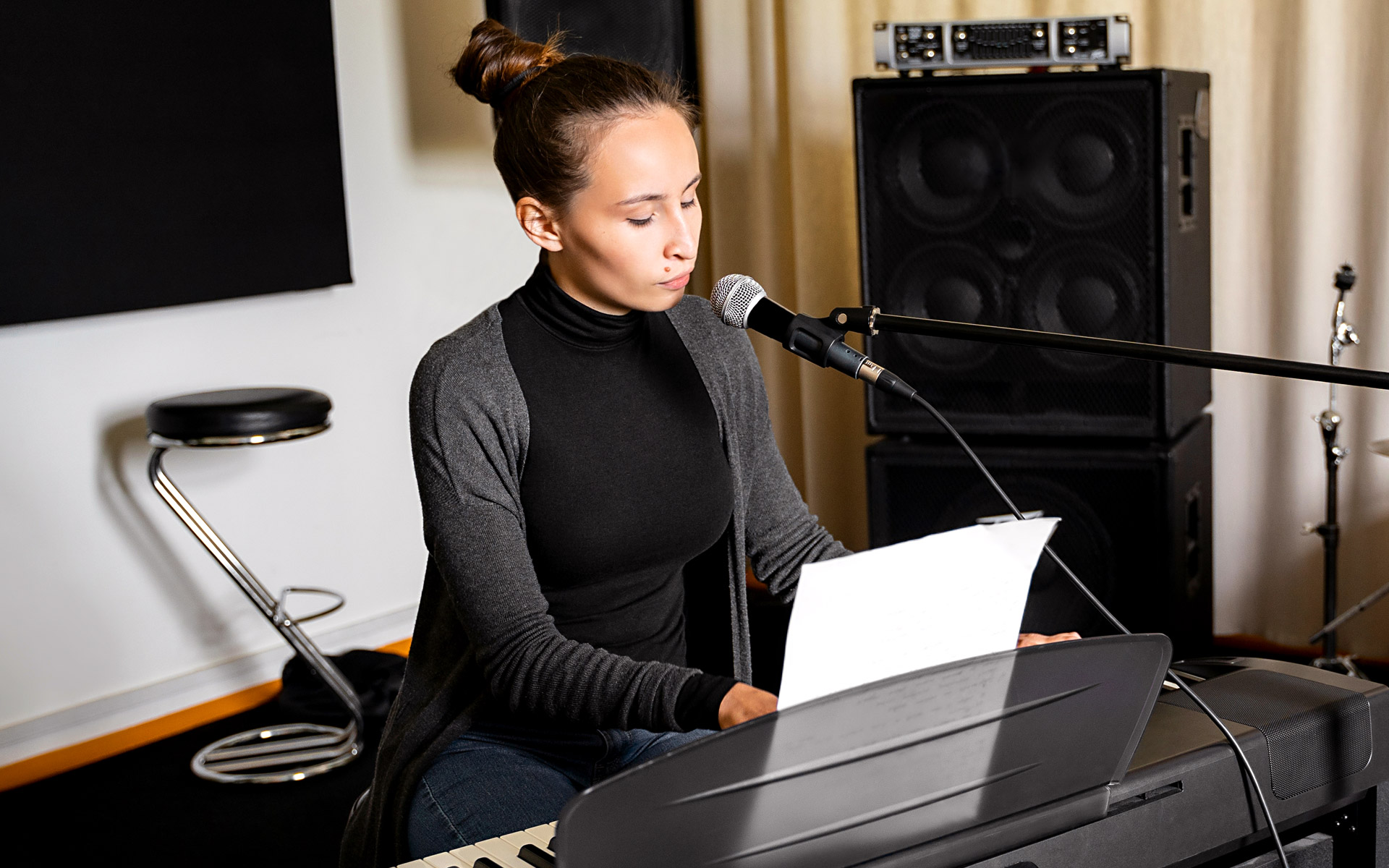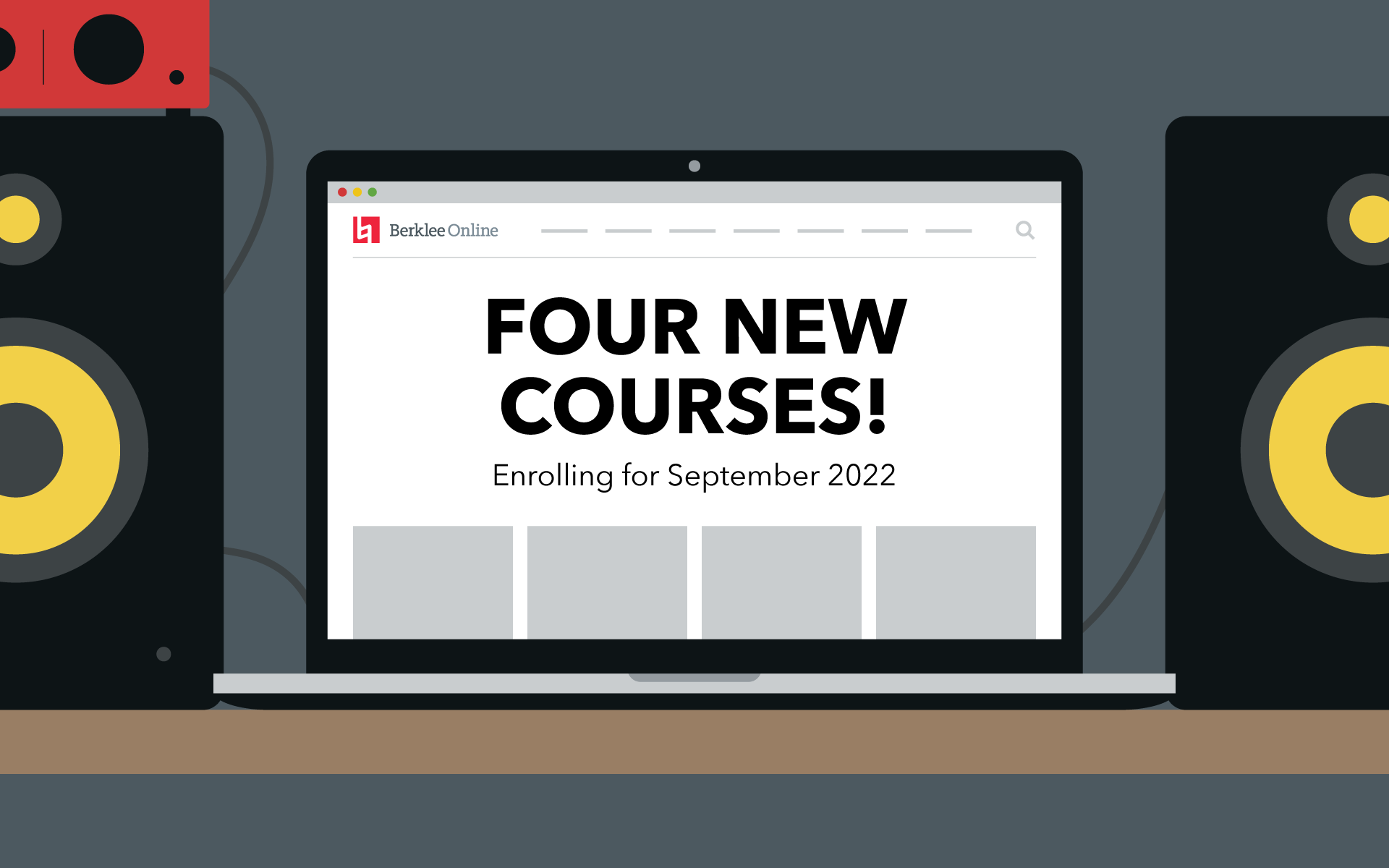Music education and technology are constantly evolving together, and Berklee Online’s newest development, an AI chatbot named BOB, is a testament to that. And before you ask, BOB stands for Berklee Online Bot.
This innovative tool integrates the latest AI technology into the curriculum, providing students with a personalized, interactive learning experience that encourages deeper engagement with their studies that complements the teachings of Berklee Online’s world-renowned instructors.
But what makes BOB unique is an approach that helps guide students through challenging concepts, ensuring they not only get answers, but truly understand the material, helping them help themselves.
From Student Support to AI Innovation
BOB was developed by Gabriel Ryfer Cohen, who has been helping Berklee Online students help themselves since he began working with the college in 2016. Shortly after graduating with a bachelor’s degree in Film Scoring from Berklee College of Music, Ryfer Cohen began working as a Berklee Online student support specialist. His role was to talk students through technical issues they faced in their Berklee Online courses. In his current role he oversees support operations.
He has been interested in the evolution of emerging technologies for a long time, and in 2023 he started an initiative called ARIA (AI-enhanced Realities and Immersive Applications), which includes weekly Zoom drop-in meetings, where he enthusiastically shares developments in the field with staff across Berklee Online teams and beyond.
“Gabriel’s work directly correlates with our vision to shape the future of music and art education,” says Michael Moyes, Berklee Online’s COO. “As someone deeply engaged in the intersection of technology and education, I’m lit up when I see an innovative tool that complements our expert instructors and deepens the learning potential of our musicians.”
As Moyes points out, Berklee Online’s instructors aren’t going anywhere! BOB is just there to help. Ryfer Cohen agrees, noting that AI’s role isn’t to replace human jobs but to enhance the learning experience.
“People will be freed up for more meaningful and impactful work,” he says. “For example, if BOB can help more students grasp trickier core concepts, instructors can focus on more advanced material, pinpoint lingering gaps, and provide richer personalized feedback. Likewise, advisors can shift more time from routine questions to engaging more deeply with students’ goals and aspirations.”
BOB’s Socratic Method Approach
BOB has access to proprietary Berklee content and uses the Socratic method, a teaching technique that encourages critical thinking by guiding students toward answers rather than simply providing them. “The point of what we are doing is that we want to support and encourage mastery of the content,” Ryfer Cohen explains, “and we can’t do that if the bot just gives you all the answers.”
Instead of solving problems outright, BOB prompts students to reflect on their questions, helping them understand the concepts at a deeper level.
For example, if you ask BOB, “How can I tell if a song I’m listening to is in a major or minor key?” the bot might say something like, “What do you think are some characteristics that might help you identify whether a song is in a major or minor key? Consider aspects like the overall mood, the types of chords used, or specific notes that stand out.” And the conversation continues from there until the student has grasped the concept in question.
This back-and-forth approach ensures that students who opt to use BOB not only receive support but also build the critical thinking skills necessary for mastery of subjects like music theory.
BOB and the Builder
Initially, Berklee Online considered purchasing an off-the-shelf solution, or outsourcing the chatbot’s development, but Ryfer Cohen says doing it in-house gives Berklee Online more control over the final product.
“We wanted something that truly understood our students and their Berklee Online experience,” he says, “and we could only achieve that by building it ourselves.”
Ryfer Cohen knew basic HTML and some Javascript, but not much else.
“I don’t have a background as a programmer at all, right?” he says with a laugh. “I went to Berklee for Film Scoring!”
But he was able to teach himself more advanced coding and develop a full-stack proof of concept. And he began working to fully integrate the chatbot with existing resources, such as Berklee Online’s curriculum, course catalog, and the Knowledge Base that he and his team had built the previous year.
“It was at that point that I said, ‘You know what? I’m going to show you that not only can we do it, but we can do it better,’” he says. “Because the idea was to create an ecosystem where all of the pieces fit together as it relates to the student journey.”
After Ryfer Cohen shared his progress, Berklee Online’s senior leadership greenlit the project, elevating it into a fully collaborative initiative. He credits his coworkers for their support with tasks like integrating services and systems, implementing the infrastructure for production, managing the project, and assisting with design and code review.
“Senior leadership and colleagues across departments also continue to provide valuable feedback,” he says, “which has been crucial in refining and improving the project at every stage.”
The Future of BOB at Berklee Online
BOB is currently being used only in Music Theory 101, where the bot leverages material from each lesson in the course to help tutor students. It can also point them to places in the curriculum they can revisit for further instruction.
The Berklee Online team is already planning to expand BOB’s reach to other courses, and other non-course areas. If you ask BOB a question about registration, you’ll get answers!
BOB represents more than just a leap forward in AI for Berklee Online—it embodies the school’s ongoing commitment to innovation in music education, as well as the institution’s continued belief in its staff.
“As we develop BOB to support more courses and areas of Berklee Online, it will continue to elevate how students learn and interact with their studies,” says Ryfer Cohen. “This project is a reminder that technology and creativity don’t just coexist, they thrive together when purposefully approached, offering not just answers, but a path to deeper learning.”



